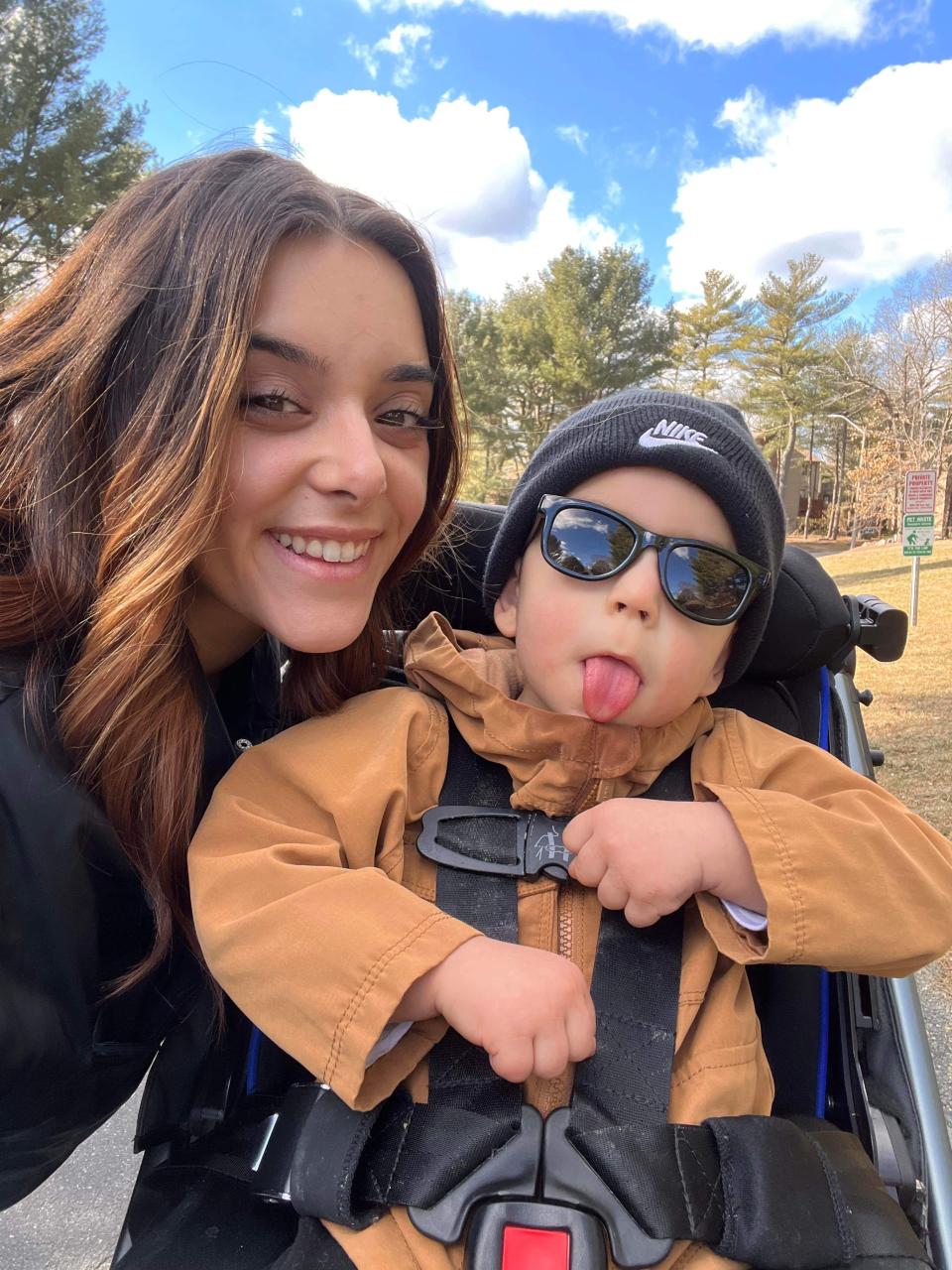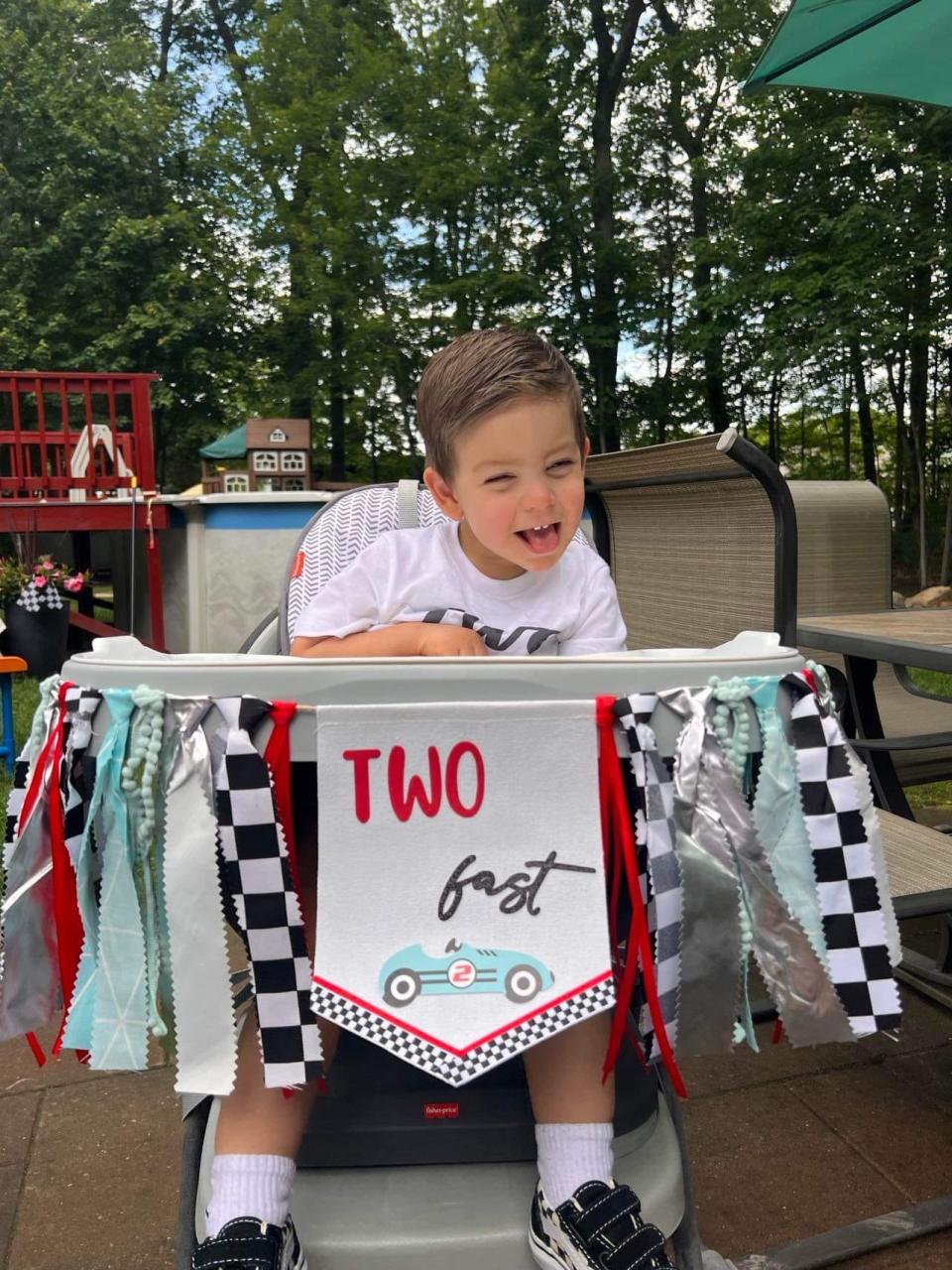Her 2-year-old son has a rare brain condition. But Ashland mom remains hopeful for future
- Oops!Something went wrong.Please try again later.
ASHLAND — A little more than two years after her son was diagnosed with a rare brain condition, an Ashland mother remains hopeful for the future.
Mary Pederson had her son, Carter, on June 4, 2021. After he was born, Carter's body temperature dropped into the 80s outside of the incubator and oxygen levels kept dropping when he was in a deep sleep.
After some testing, Carter was diagnosed with lissencephaly, a malformation of the brain due to a rare genetic problem. In Carter's case, the back of his brain and part of the side of his brain are smooth, causing developmental delays and other adverse health effects.

'Carter is strong': Ashland family staying positive after infant boy diagnosed with rare brain condition
Carter celebrated his second birthday on June 4. Pederson described his first two years as "rough."
"I myself was trying to get used to the new lifestyle of being a single mom with a non-neurotypical kid," she said.
Carter experienced seizures, which have been tempered through the use of medication.
Although Carter cannot walk, he can make a few sounds.
"It's been hard having him be 2 and seeing other 2-year-old kids walking around and running around and being able to do more things than Carter can," Pederson said.
Mary Pederson keeps focus on 'what Carter can do now'
Pederson, 24, said she has become a homebody in order to take care of Carter.
"It's kind of funny, I laugh at it," she said. "Growing up, you go from asking your parents (for) permission to go out and hang out with your friends, and then you reach a certain age, you don't have to do that anymore," Pederson said, adding that her being a single mother has forced her to revert back to that.
While Pederson does not work, she does help out at UpperKuts Boxing Gym in downtown Ashland, teaching boxing classes. Helping out there is something Pederson says brings a bit of normalcy.
"It helps me kind of stay consistent in the gym, it's kind of like my me time there," she said.
Pederson said she's hopeful for the future.
"I would say I wish I could predict the future and see what it looks like," she said. "I like to focus on just now, focusing on what Carter can do now, what I can do to better help him as well."

'We miss him like crazy': Former Sox pitcher Rich Hill pens emotional essay about infant son's death
Pederson said she hopes that he will be able to at least walk on his own. Doctors have said that whatever Carter can do at age 7 is about what he'll be able to do for the rest of his life.
Carter has been developmentally doing well, according to Pederson.
Carter shows frustration when he can't do things on his own
"He's starting to get a little frustrated with himself," she said. "He's at least showing that kind of side that he wants to do things on his own."
Pederson's father, Erik, agreed.
"He is trying harder to voice sounds and stuff like that," Erik Pederson said of his grandson. "I've seen his legs have built up a little bit more muscle with all the hard work that Mary's been doing with him."
Throughout the first two years of Carter's life, he and Mary Pederson have received help and support from Pederson's parents, Erik and Donna.
"We're there for whatever she needs," Erik said. "If she just needs a break to get out of the house for a few hours or something like that, my wife has been amazing about watching Carter."
Erik Pederson explained that for Mary, taking care of Carter has been a full time job.
"Going to PT (physical therapy) and just working with Carter," Erik said. "A lot of the strides that Carter is making is due to all Mary's hard work."
What is lissencephaly?
Lissencephaly is characterized by a lack of normal folds in the cerebral cortex of a baby's brain. The term "lissencephaly" means “smooth brain,” according to the National Institute of Neurological Disorders and Stroke (NINDS). It’s estimated that 1 out of 100,000 babies are born with the condition.
"Lissencephaly is caused by defective neuronal migration during embryonic development," the NINDS website reads. "the process through which nerve cells move from their place of origin to a permanent location within cerebral cortex gray matter."
Pederson has not only received help from her parents but also the community.
Two GoFundMe accounts were created for mother and son, raising more than $15,000. In addition, Pederson and her father were able to spread awareness of lissencephaly at the Ashland Summer Concert Series in 2021. The Ashland Select Board has proclaimed Sept. 8 as Lissencephaly Awareness Day. One GoFundMe helped Pederson pay for a wheelchair-accessible van.
"A lot of people have just flooded us with their kindness and support and things like that," she said.
This article originally appeared on MetroWest Daily News: Ashland single mom remains hopeful for son, 2, with lissencephaly

